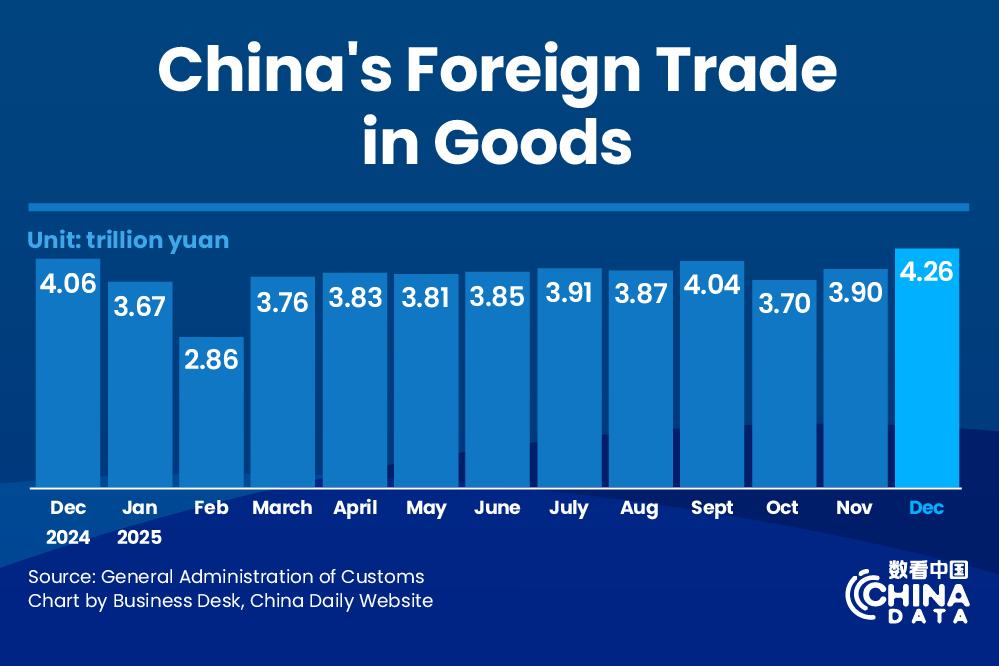US businesses pleased new tariffs off table


Still, makers of apparel and child-safety related products remain concerned over prior tariffs on $250b worth of Chinese imports
US businesses expressed relief that further tariffs on Chinese imports have been deferred, but they continue to push for their products to be exempted from the possible duties list.
US President Donald Trump and Chinese President Xi Jinping on Saturday agreed at the G20 Leaders Summit in Japan to restart trade negotiations that have been stalled since the 11th round in May. The US side also said it would not start new tariffs on Chinese exports.
"While we are pleased there has been a stay of execution for the apparel and footwear industry — the end result of the G20 is that $250 billion worth of US imports from China continue to be hit with a 25 percent tariff, and we continue to find ourselves in a highly uncertain environment," Stephen Lamar, executive vice-president of the American Apparel & Footwear Association, said on Tuesday.
Tuesday was the last day for companies and trade bodies to submit rebuttal comments following the June 17-25 hearings by the US Trade Representative's Office on the planned 25 percent duties to be levied on the remaining $300 billion worth of Chinese goods, on the top of $250 billion worth of products already targeted.
The fact that many companies have followed up their hearing testimonies with supplemental documents to the USTR indicate that they have not relented in their efforts to have their products exempted from possible tariffs.
The American Apparel & Footwear Association, which represents an industry that employs nearly 4 million US workers, reiterated in a statement to the USTR on Tuesday that it was "deeply disturbed" by the administration's proposal to include apparel, footwear and home textiles on the target list.
"Any tariff on these consumer goods — that are used by EVERY AMERICAN — will end up hurting US consumers, in addition to the companies and workers who support them," the association said in the statement. "We expect prices to go up, sales to go down, and jobs to be lost."
In 2018, China accounted for about 42 percent of all apparel and 69 percent of all footwear imported into the United States. China has emerged as a top supplier because it has "unparalleled supply chains" that have been developed over generations, according to the statement.
"We feel it is important to take advantage of every opportunity to make sure our views are known," Lamar told China Daily. "We are looking forward to resolution of the underlying issues and continue to push for the elimination of all tariffs at the earliest possible opportunity."
He said it is noteworthy that whether or not a deal is made, inflation has already been baked into the system.
"The result will still be increased prices for American consumers – including those least able to afford them," Lamar said. "We are demanding that the administration stop using tariffs as a negotiating strategy."
Connie Bryant Breedlove, director of public relations for the Juvenile Products Manufacturers Association (JPMA), said her organization was glad that the tariffs have been postponed.
"However, we remain concerned about the future uncertainty of these trade discussions, and strongly committed to our position that all 'childcare articles and protective child safety products' be exempt from tariffs," she told China Daily in an email.
JPMA, the voice of the industry on quality and safety for baby and children's products, takes "nothing for granted" and continue to share the importance of ensuring products that help keep babies safe remain affordable for American families, she said.
In her rebuttal comments, Jesse Spector, director of technology policy at the Software & Information Industry Association (SIIA), also highlighted the specific harms SIIA's member companies would face were the additional tariffs to be implemented.
More than three-quarters of US imported mobile phones are from China; 90 percent of laptop computers; and more than 50 percent of connected devices, according to SIIA, the principal trade association representing software and digital information industries worldwide.
"Given this volume, there is simply insufficient capacity in the rest of the world to absorb production shifts of these high-demand devices in the short term," Spector said.
That means that if the tariffs go into effect, US producers would have to either sacrifice profits on US sales or pass increased costs on to consumers by raising prices, Spector said.




































